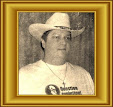While everyone has an opinion, most people can tell the difference between an off-the-cuff remark and a truth claim. A truth claim seems to carry knowledge, and it is often said with authority and confidence. One aspect of critical thinking is to have healthy skepticism instead of simply accepting statements.
It is very important to have a foundation in the truth, and knowing where to find answers to questions (which is one reason sites like this point to resources). An excellent starting point is ASKing.
 |
| Pixabay / Justina Nagy |
Those with a worldview rooted in atheistic naturalism make a priori rejections of biblical truth, and will not even consider the spiritual nature of humanity. As Christians, we have the written Word of God and the guidance of the Holy Spirit. Atheists like to try to discredit the Bible, often humiliating themselves in the process (as shown here, for example). We presuppose the truth of the Bible, which is self-authenticating, and they are hardcore presuppositionalists of materialism. Hearing a truth claim against God, the Bible, creation, and so on from an atheistic source should be a red flag.
People sound credible, but are they making claims within their areas of expertise? Ofttimes, assertions are simply opinions based on their worldview and cannot be investigated. It has been said that someone can be sincere, but they can be sincerely wrong. Don't be hoodwinked by someone with confidence. The ASK method is easy, and an excellent starting point. You may not even need to put in extra work afterward.
Ideas bombard us every hour of the day. They come with a buzz in our pocket or flashing across our screen. So how do we sort through all of these claims, finding the meat among the bones? The Bible says we must constantly be on guard (Ephesians 5:15). I teach my children how to do this, and I must do it myself all day long. Whenever we hear a truth claim, we immediately evaluate it by ASKing a few questions. No, that’s not a typo, it’s an acronym to help us remember to ASK good questions.
I'd be much obliged if you'd read the full article or listen to the audio at "ASK Method to Bible Challenges."
